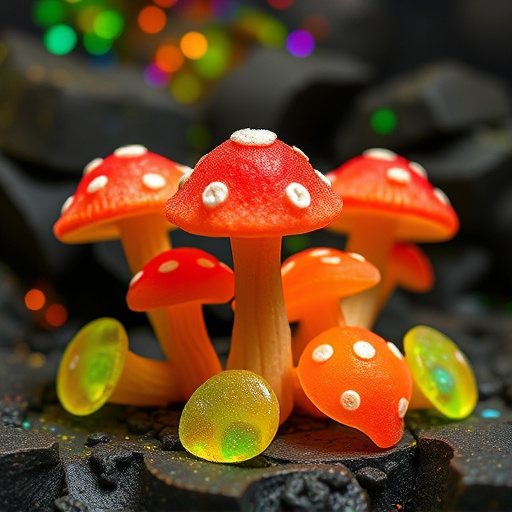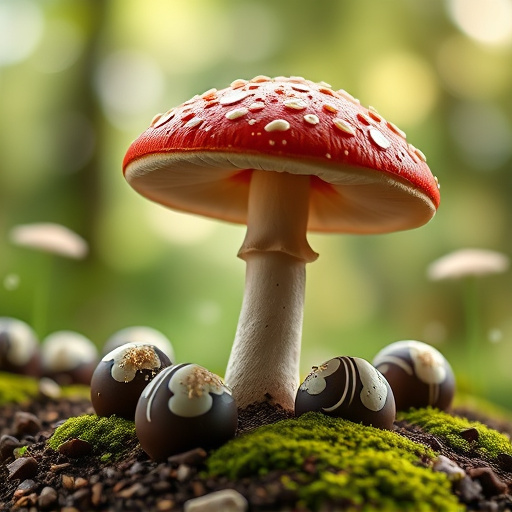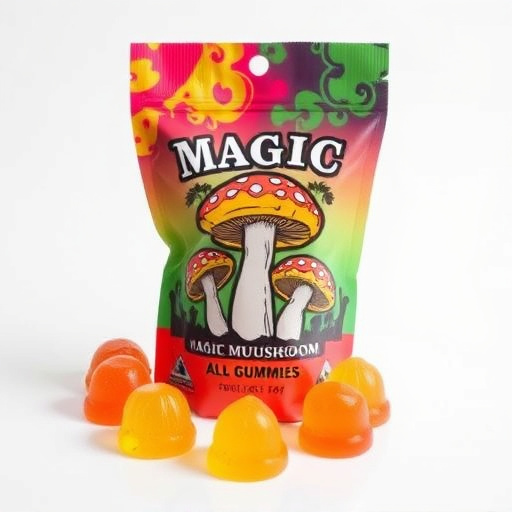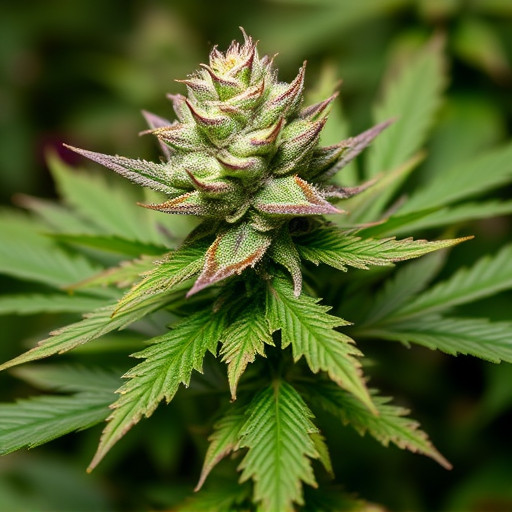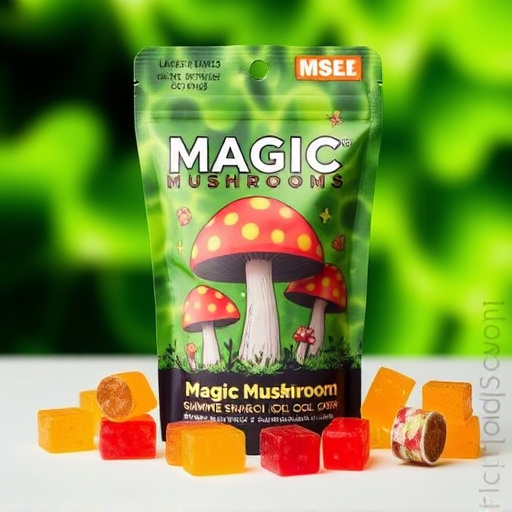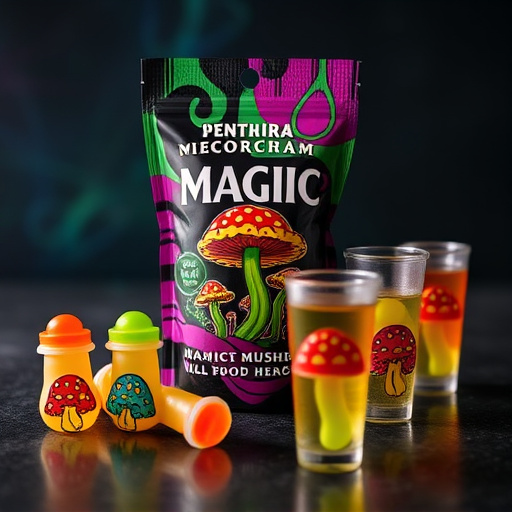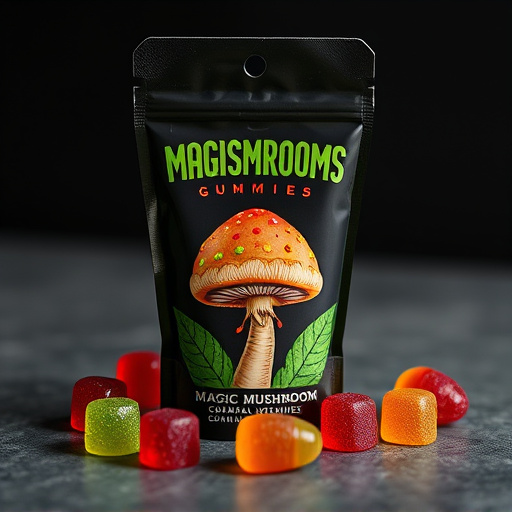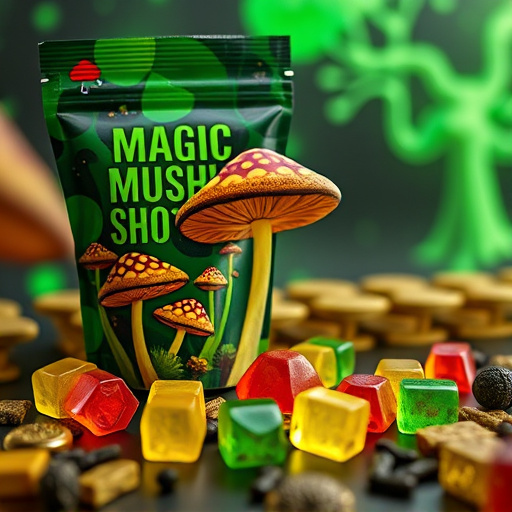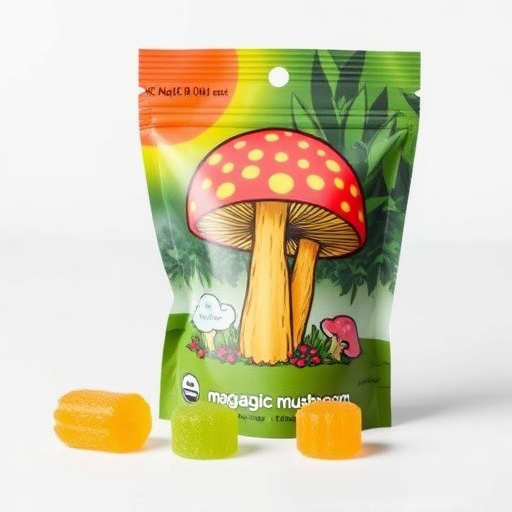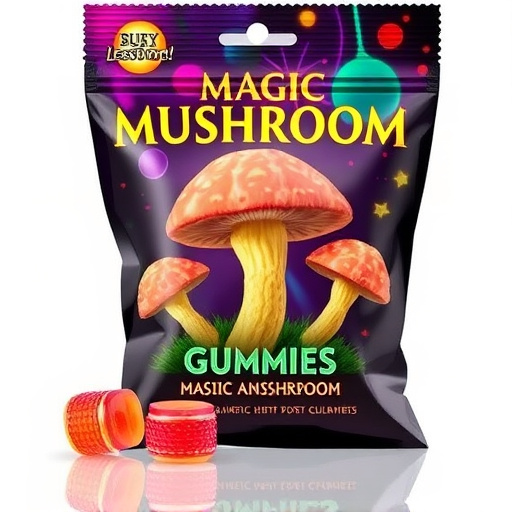- Understanding Magic Mushroom Gummies: An Overview
- The Science Behind the Placebo Effect
- Potential Benefits and Considerations for Anxiety Relief
Understanding Magic Mushroom Gummies: An Overview
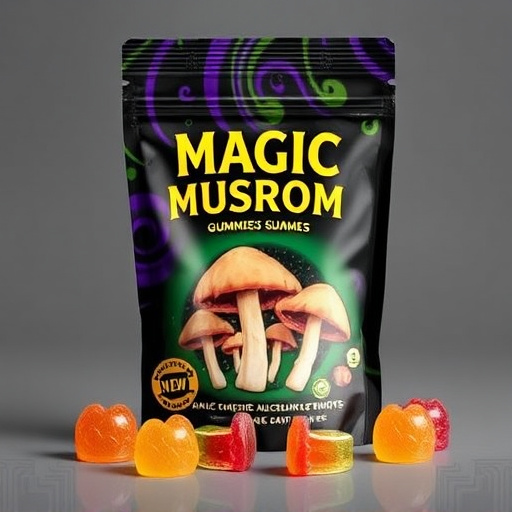
Magic Mushroom Gummies are a novel approach to anxiety relief, combining the potential therapeutic benefits of psilocybin mushrooms with the familiar form of gummies—small, chewy candies. These products claim to offer a natural and alternative way to manage stress and anxiety symptoms. The active ingredient in these gummies is typically psilocybin, a compound known for its psychedelic effects when consumed. However, beyond the intoxicating properties, research suggests that psilocybin may have therapeutic applications, including reducing anxiety and depression.
The concept of using magic mushroom gummies taps into the placebo effect—a phenomenon where individuals experience improvements in their condition simply because they believe a treatment will work. Placebo effects can be powerful, and the expectation of relief can sometimes be as effective as the medication itself. As such, the marketing of magic mushroom gummies often emphasizes the potential for a psychological transformation, promising users a sense of calm and perspective that goes beyond what conventional anxiety treatments offer.
The Science Behind the Placebo Effect
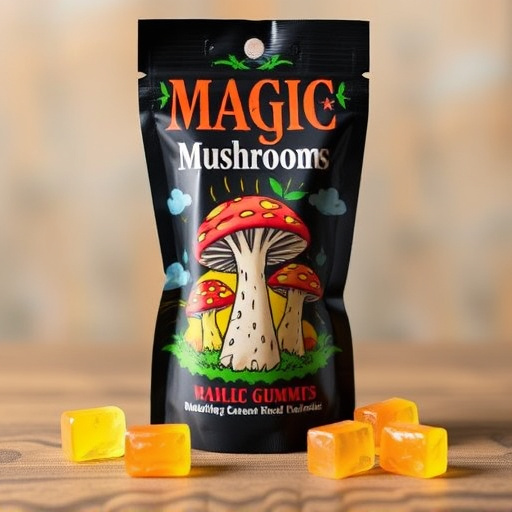
The concept of using Magic Mushroom Gummies for anxiety relief is rooted in an intriguing phenomenon known as the placebo effect. This effect, while seemingly mystical, has a solid scientific foundation. It refers to the positive changes in a person’s well-being that occur not due to the direct effects of a medication or treatment but because they believe it will work. In the context of Magic Mushroom Gummies, the act of consuming these treats can induce feelings of relaxation and altered perception, leading to reduced anxiety symptoms.
The placebo effect is a powerful tool in understanding how our minds can influence our bodies. Research suggests that when individuals expect a treatment to provide relief, their brains release chemicals like dopamine and serotonin, which are associated with pleasure and well-being. In the case of Magic Mushroom Gummies, the act of taking them, along with the belief in their therapeutic benefits, can trigger this biochemical response, potentially offering anxiety relief.
Potential Benefits and Considerations for Anxiety Relief
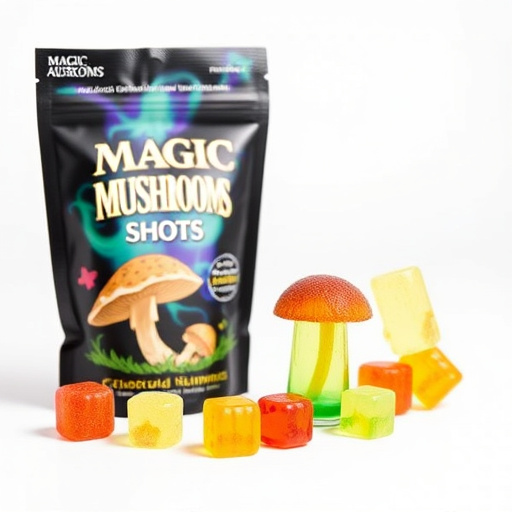
Magic Mushroom Gummies have gained attention as a potential tool for anxiety relief, offering a novel approach to managing stress and nervous disorders. These gummies are infused with psilocybin, a compound found in certain types of mushrooms known for their psychoactive properties. While often associated with recreational use, research suggests that psilocybin can induce a state of altered consciousness that may facilitate healing and emotional processing.
The potential benefits extend beyond the immediate experience. Studies indicate that the placebo effect plays a significant role in the effectiveness of Magic Mushroom Gummies. The act of taking these gummies, along with the expectation of relief, can trigger positive cognitive changes and reduce anxiety symptoms. However, it’s crucial to approach this alternative therapy with caution and an understanding that individual responses vary. Some users report profound experiences, while others may not feel significant effects, highlighting the need for further research and professional guidance in exploring Magic Mushroom Gummies as a treatment option for anxiety relief.
Magic mushroom gummies, while intriguing as an alternative anxiety relief method, require further scientific exploration. The placebo effect plays a significant role in their perceived benefits, suggesting that the mind’s power over perception can significantly impact one’s well-being. While preliminary studies show promise for certain individuals, more research is needed to fully understand their effects and establish effective dosing. Until then, it’s crucial to approach magic mushroom gummies as a complementary rather than a standalone treatment for anxiety, always prioritizing evidence-based practices alongside professional medical advice.
